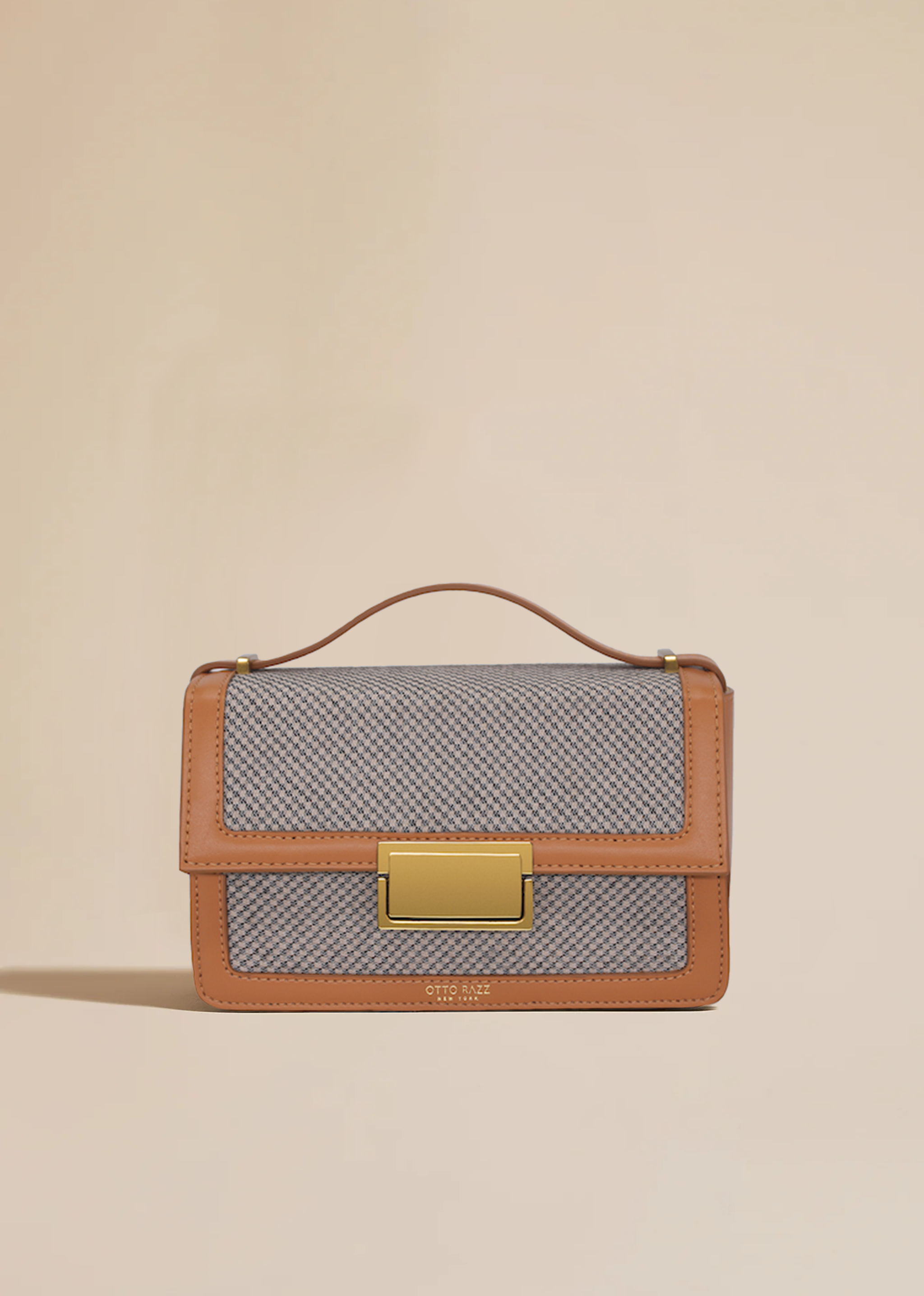OUR MATERIAL
Apple Leather
We are dedicated to redefining luxury by integrating apple leather as our main fabric. Apple leather offers a premium, cruelty-free alternative that reflects the future of sustainable fashion.
What is Apple Leather?
Our partners have spent many years researching solutions for sustainable, eco-friendly and cruelty free leather options. The result is an innovative and bio-engineered leather from organic industrial apple waste.
This revolutionary apple leather is farmed from apples and transformed into a durable apple leather fabric in northern Italy.
How is Apple Leather Made?
Apple leather begins as a raw material deriving from organic apple waste. Food waste is generally put in landfills or burnt to ashes.
The organic apple waste, such as pulp and other remnants are dried and ground into a powder form. The waste is laid out and sealed with a resin, transforming into a durable vegan leather.
By using apple waste in our leather, we are ensuring that this waste remains in the production cycle as a valuable resource while dramatically reducing our environmental pollution.
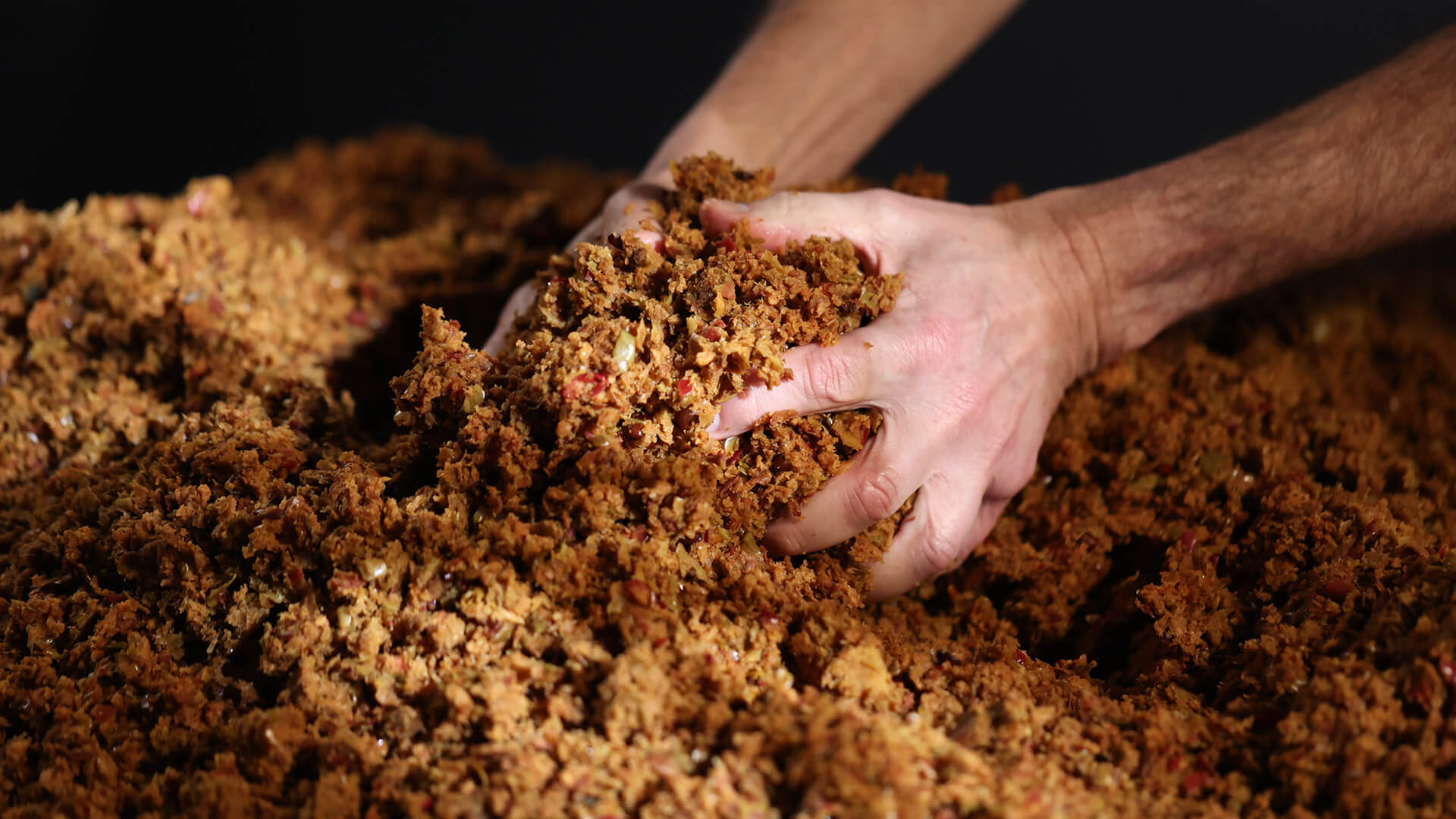
Fruit to Fabric
Apple leather - a groundbreaking material that transforms discarded apple waste into a luxurious, vegan and sustainable fabric. A symbol of how we’re reimagining fashion with nature in mind.vegan,
Life Cycle Assessment
A common misconception is that apple leather is just another vegan alternative, similar to synthetic leather. In reality, apple leather stands apart by being crafted from repurposed waste materials, making it a far more sustainable option.
It combines the durability and luxurious feel of traditional leather with a much lower environmental impact, offering a sophisticated and truly eco-conscious alternative for those seeking a cruelty-free, sustainable material.
A study by the University of Milan found that apple leather outperforms synthetic leather in all 17 environmental impact categories, highlighting its significant environmental benefits and superior advantage. Notable findings from the study include:
40%
Reduction in global warming contribution.
40%
Reduction in ionized radiation exposure.
39%
Reduction in terrestrial ecotoxicology. This measures how environmental pollutants affect land-dependent organisms.
The full LCA can be found here.
Shop Handbags
-
Madison Bag In Smooth Black Apple Leather
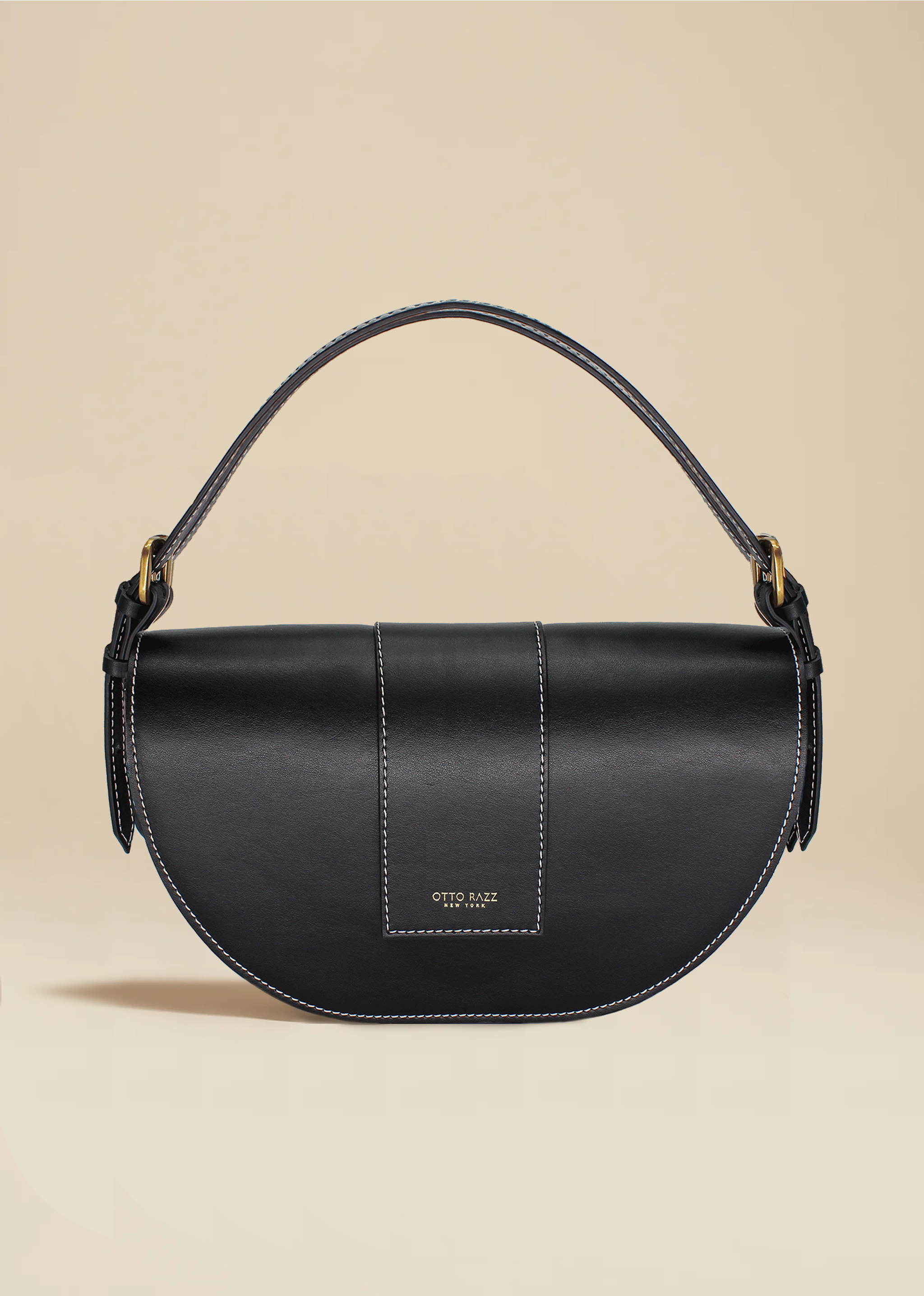 $427.00 SGD
$427.00 SGD -
Madison Bag In Smooth Tan Apple Leather
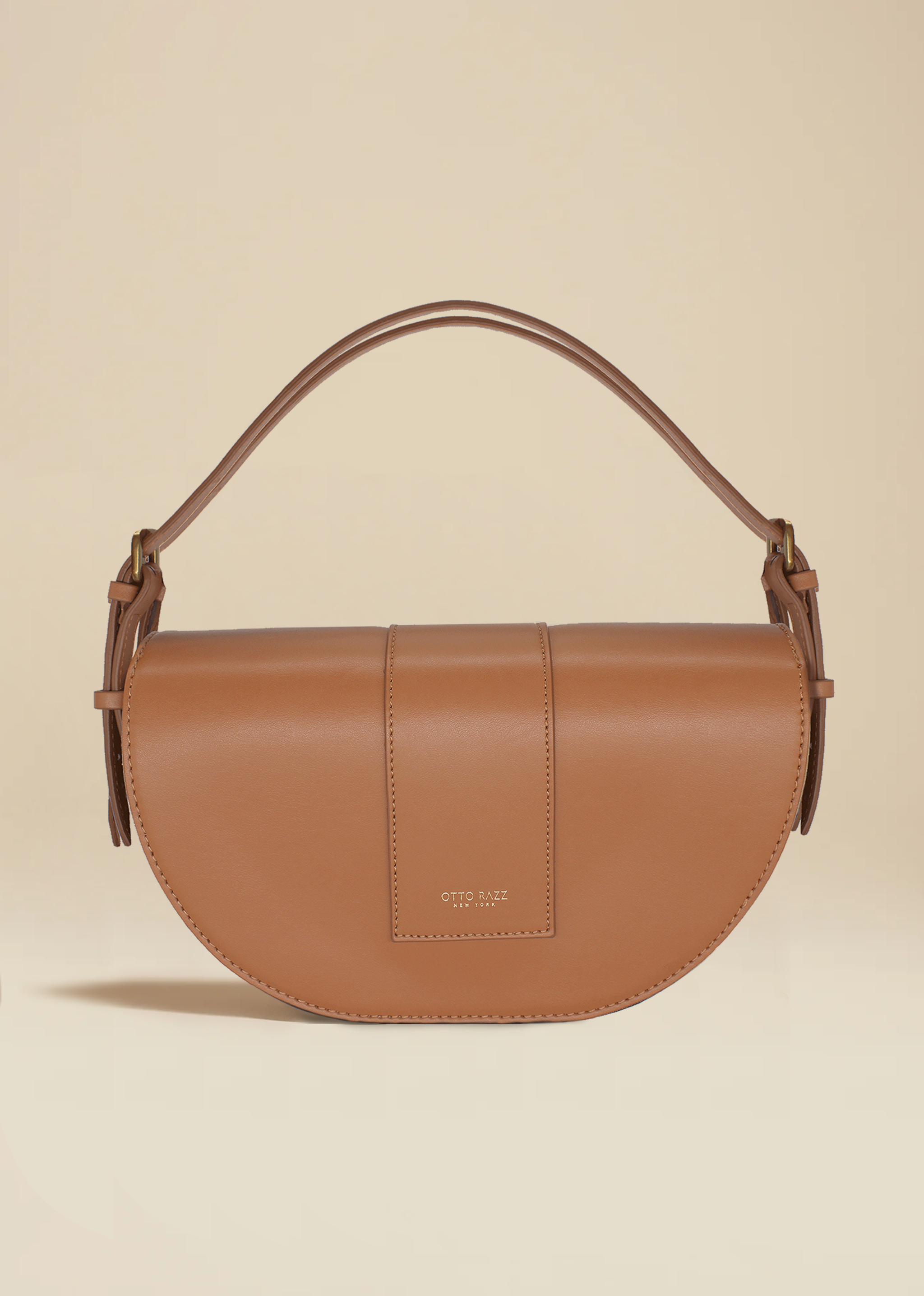 $427.00 SGD
$427.00 SGD -
Bowery Bag In Smooth Black Apple Leather
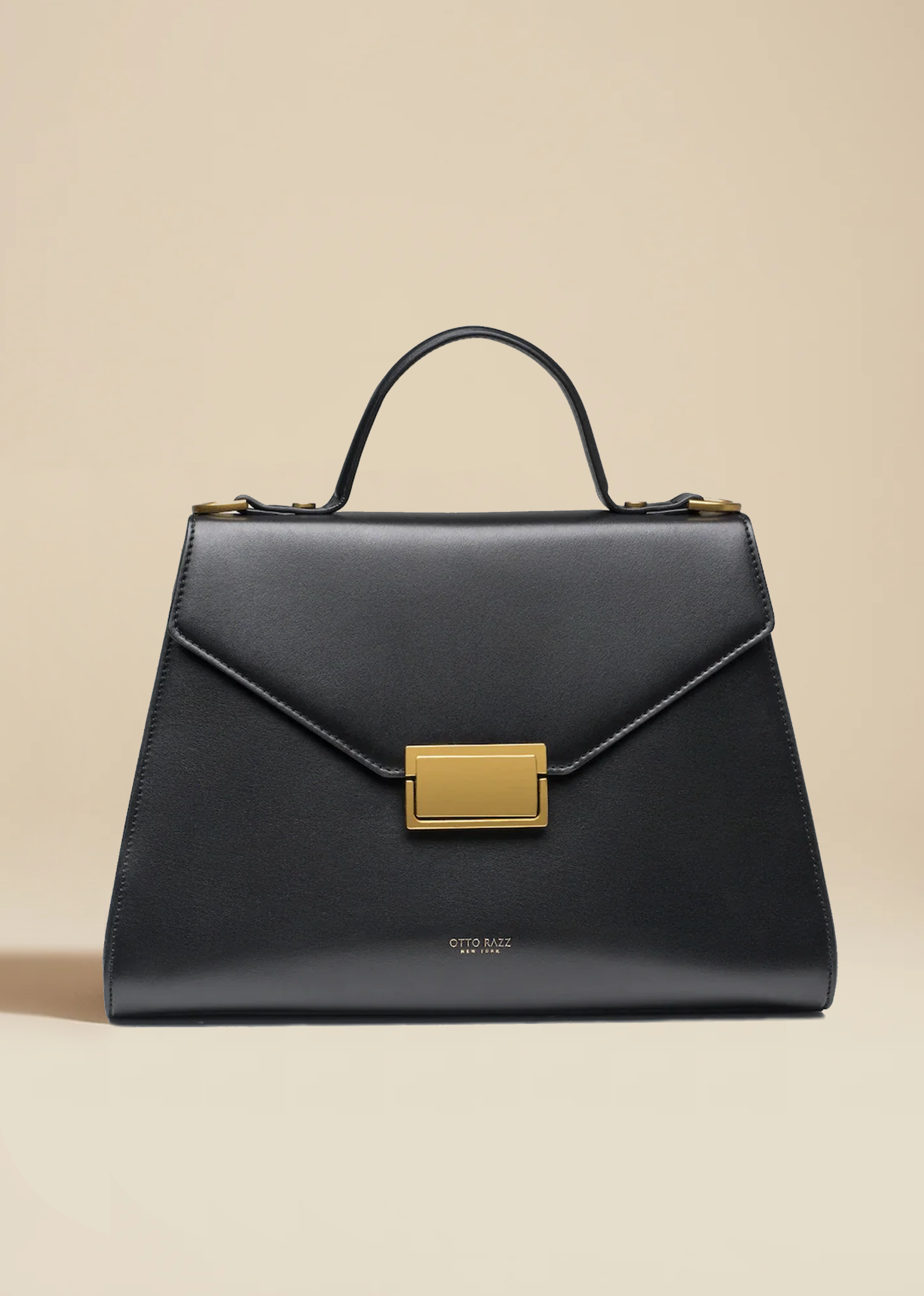 $466.00 SGD
$466.00 SGD
